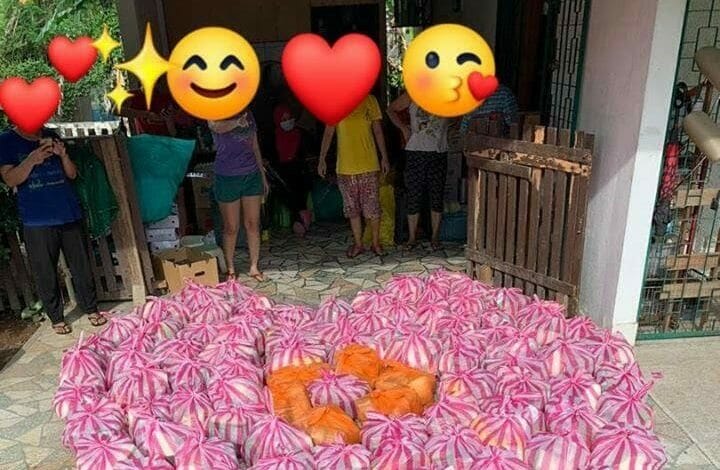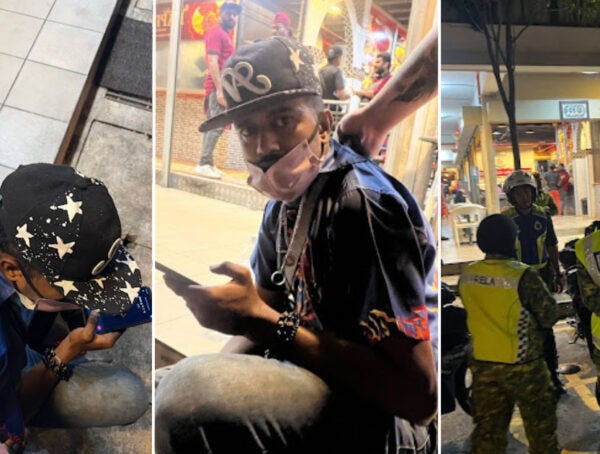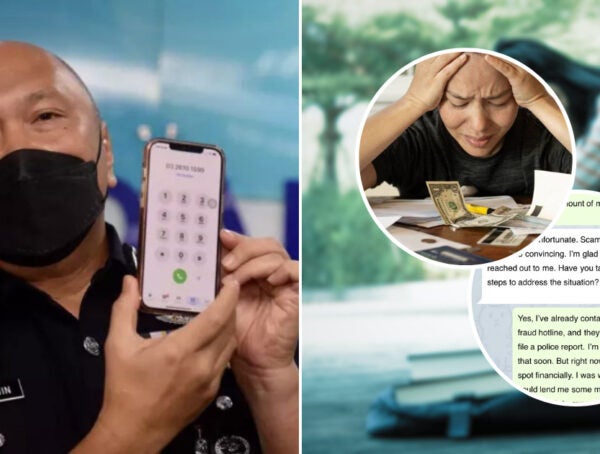By Anne Wong
[Disclaimer: These are collective views from Caremonger members Kon Ket Sing and Shayley Hing who has agreed to provide their views based on their experiences as detailed in this Facebook post and a separate interview with IRL correspondent Anne Wong. The views expressed are of these members and do not necessarily represent the Caremongers group.]
I work as a volunteer for a Facebook group, the Caremongers – a community based group.
It’s where people can choose to either volunteer themselves to help out during the MCO, or those in need may ask for help and the community will act accordingly.
We are not an NGO group, but it is an initiative among the neighbourhood to help out those in need within their own districts.
Every day we received hundreds of requests; from single mums who can’t pay her rent, to a migrant worker who can’t afford groceries.
We get them all the time, and of course, we will do our best to help them.
 [Image by Kon Ket Sing]
[Image by Kon Ket Sing]
However, sometimes we find that there are cases when the person who requested for help is not actually in need.
One time, we received a case from a mother who was pleading for help as she barely had enough groceries to feed her family.
By the time a volunteer arrived with the goods, he was shocked to find a large house with two cars and there stood that lady.
She smiled sheepishly when we reprimanded her. And her case wasn’t the first we’ve come across over time.
That’s where my team comes in. We’re the ones who are tasked at sniffing out the fake ones from the genuine cases. Here’s how we do it:
- Getting as Much Data as Possible

We would first ask the applicants to fill up a Google form, which requires them to provide their full names, IC or passport numbers, and the mobile numbers of everyone in the household.
Once that is done, all data will be uploaded into a Google sheet where volunteers can view it.
When the sheets are filled, we would then set an algorithm to detect duplicate names and other info, to identify people who would try and repeat applications.
- Divide and Conquer

We have 2 WhatsApp group chats, one looking for aid and another for volunteers. That way, volunteers won’t be bombarded by hundreds of messages.
In my case, I would call up the applicants to have a chat with them, get to know their situations and determine if they’re real or not.
What I observed is that the scammers are the ones who would actually be very diligent about calling up, asking when we’ll be able to send over the money or food and will continue to follow up.
On the other hand, the desperate cases wouldn’t phone up as much, mostly because they’re actually really shy to ask for help, but they would be helpful in providing any proof of their situation.
Sometimes, I would even go as far as to call up the developers for the case of ‘Kongsi Houses’ (shared homes where construction workers resides), asking about their workers’ situation and whether they’re actually being paid.
You’d be surprised that some of these workers are actually still paid regularly, and even have food in their pantry, but they would still try and ask for food just so that they have more savings.
We would even go over to the place to check out the area to see if it exists and check on the condition of the workers.
- Visual Proof

Most of the time, we would video call them randomly so that we can see their situation at home.
As we are in the midst of the MCO, there is no reason why the applicant wouldn’t be at home most of the time.
Some of the scammers may try to avoid our calls, giving various excuses such as being in the mosque, going out for groceries, etc… But we will try again at another time, and we will never tell them when.
It also helps to verify the cases when we could ask them to show us the interior of the house as well as outside so that we could see if their address is real.
We might even go as far as to ask them to show us their pantry to see if they really are running out of food or not.
And if the person is living with other people in the house, we would ask them to send over a selfie with all the people whom they claim are living there as well.
If they try and claim groceries for 10 people, we would expect to see 10 of them in the picture.
Never assume they are all scammers
Of course, while some cases may have been vetted out at the first stage, with the assumption that it’s a scam, I would occasionally call up some of these rejected cases to see if they really are genuine or not. And surprisingly, some of them are.
There was this one time I met a lady, who’s initial application seemed a little aggressive, so the volunteers struck her out, not wanting to deal with her.
But when I called her up, I realized that she was actually suffering from poor mental health and was really in distress.
After helping her to calm down, I then learned that she was living alone, had no job, but was being fed by a kind neighbour who offered to cook for her.
But of course, after a while, she felt really shy to go there, especially when she had nothing to offer and only came by to eat.
After verifying her case, we managed to bring some groceries for her and she was so grateful for it.
She even called us up some time later saying that someone had given her some extra groceries and wanted to know if there’s anyone else in need who might want to have them.
She was insistent on giving them away, saying that she was once in that situation, and wanted to give what little she has.
Only 2% of all cases are scams
Truth is, after some 608 cases, there’s less than 12 dishonest cases (that are discovered). That’s less than 2% of all cases received.
It hit me that we might be putting a disproportionate amount of resources dedicated to what might be just a minor issue.
It’s minor when I look at our numbers for sure, but it’s really major emotional stuff when we get cheated.
However, by giving food aid, we already filter out most dishonest cases.
What’s there to be dishonest about for basic food items that typically don’t even cost RM50 unless you really don’t have the food or money?
At the end of the day, we love what we do, and when we see the gratitude of families, it gives us the encouragement to keep doing what we do.
For more stories like this, read: 5 Alarming Scams that Fooled Malaysians Over and Over Again and I’m A Rohingya Who Lived In Malaysia For 20 Years — Here’s What We Really Want From Malaysia.

You might also like
More from Real Skills
How I Saved Almost RM50,000 On Buying My First Car
Here's how this Malaysian man with a RM3,500 salary saved RM50,000 on his first car.
Angry M’sian Boss Demands Unpaid Overtime Over Raya, Causes 9 Staff To Quit
An anonymous employee at a local SME shares how a bad-tempered boss eventually caused 9 staff to quit before Hari …
I Studied In Chinese School As A Malay Boy, Here’s What I Learnt
Every time I used Mandarin outside of school, family members would come up to me at gatherings and ask me …

















